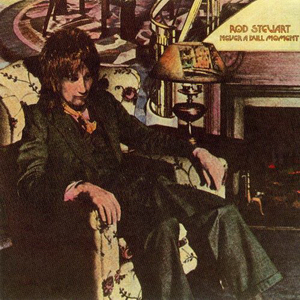Never a Dull Moment (Rod Stewart album)
| Never a Dull Moment | ||||
|---|---|---|---|---|
 |
||||
| Studio album by Rod Stewart | ||||
| Released | 21 July 1972 | |||
| Recorded | March–May 1972 at Morgan Studios and Olympic Studios, London | |||
| Genre | Rock and roll, white soul, folk rock | |||
| Length | 33:04 | |||
| Label | Mercury | |||
| Producer | Rod Stewart | |||
| Rod Stewart chronology | ||||
|
||||
| Singles from Never a Dull Moment | ||||
|
||||
| Professional ratings | |
|---|---|
| Review scores | |
| Source | Rating |
| AllMusic | |
| Robert Christgau | A− |
| The Rolling Stone Album Guide | |
Never a Dull Moment is the fourth solo album by rock musician Rod Stewart. It was released in the summer of 1972; that year it became a UK number-one album (for two weeks) and reached number two on the US Album chart. The track "You Wear It Well", co-written by Stewart and classical guitarist Martin Quittenton, was a smash hit (another UK No. 1; in US No. 13), as well as "Twisting the Night Away", a song originally recorded (and written) by Sam Cooke.
Like many of Stewart's albums from the era, Never a Dull Moment features significant musical contributions from the members of his band Faces. Other guest musicians included Ray Jackson of the band Lindisfarne on mandolin, Spike Heatley on upright bass, Gordon Huntley on steel guitar, Dick Powell on violin and Pete Sears on piano and bass.
"Mama You Been on My Mind" is a cover version of a Bob Dylan song. Stewart's version is one of the songs featured in Nick Hornby's book 31 Songs.
On the 8-track tape release of the album the song "What Made Milwaukee Famous (Has Made a Loser Out of Me)" was on program 2 following "Twistin' the Night Away", but it was not mentioned in the song listing.
"Angel" is a tribute to, and written by Jimi Hendrix, who had recently died. Hendrix and Ronnie Wood had shared a flat in the late 1960s, and were both at a Soho club on the night he died. The song can be heard in one of the scenes of the film Charlie's Angels.
...
Wikipedia
